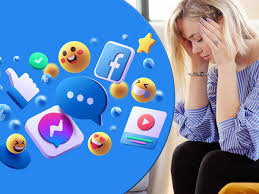CW: This article discusses topics of anxiety, depression and self-conficence issues which could be distressing to some readers.
In recent years, awareness on the topic of mental health and its importance has increased significantly. In the 1950's, it was seen as an untreatable, violent condition, too shameful to be discussed in public, but now it is a primary part of a person's education, able to affect anyone, both young and elderly, and is seen as a medical condition that can actually be treated.
Mental health refers to a person's emotional, psychological, and social well-being. It can affect how we think, feel and act, as well as how we determine and handle stress. Positive mental health can allow people to work productively, realize their full potential and cope with the stresses of everyday life. However, negative mental health can result in various conditions like insomnia, anxiety, low self-esteem, and depression. There are many people who are suffering from mental health problems both publicly and secretly, and there can be different reasons why, but the main one I am going to be discussing today, is social media and whether it has had a negative effect on people's mental health.
Nowadays, everyone has access to social media, whether it’s through a smartphone or a laptop, we are all always connected and can easily keep tabs on other people's lives all without leaving the safety and comfort of our own homes.
However, this round-the-clock, hyper connectivity can trigger impulse control problems, and the constant alerts and notifications can affect your concentration and focus, disturbing your sleep and make you a slave to social media. In some cases, this could even be classed as an addiction even more dangerous than cigarettes and alcohol as excessive use can fuel feelings of anxiety, depression, isolation and FOMO as well as worsen any mental health problems you may currently have.
Though there are some positives to social media like...
Positives:

The main advantage is most probably convenience, people are able to communicate ad stay up to date with family and friends easily, which can be important if you have a very time-demanding job that stops you from going out a lot or meeting up with loved ones. In a way, this convenience can help reduce people's loneliness as it can also help people find and make new friends and speak with others who share similar interests even if they are half a world away. This can be quite useful for people who may suffer from social anxiety or have limited independence. Social media can also act as an outlet for creativity and self-expression and it can allow you to support and raise awareness for important social issues. Social media can have a positive impact on people's lives, it is when they become overly dependent and unable to differentiate fake from real that the use of social media can become quite harmful.
Negatives:

There have been a few studies on whether a high usage of social media platforms can increase feelings of loneliness and risk developing or exasperating mood disorders like anxiety or depression as people begin to prioritise social media interaction over real life relationship. Though it has yet to be definitely proven, correlation between the two has been shown to exist. Another problem social media can cause are self-absorption and low self-confidence issues. Sharing endless selfies and your every innermost thoughts on platforms like Instagram or Facebook can create an unhealthy self-centeredness and when you look at the images of other people , even if you are aware that they have been manipulated to only show the best parts/highlights of their lives, they can still make you feel envious and insecure about your own lives and how you look in comparison to others, that is simply human nature. Finally, FOMO...
The fear of missing out - is a huge driver of anxiety, but 40% of adults are unfamiliar with the term.
...and social media addiction has become an increasingly common affliction as people are being constantly encouraged to keep updating and checking on their social media, in fear that you are missing out on certain things which can trigger feelings of anxiety and low self-esteem, fuelling the need for greater social media use and the compulsion to check your phone even during inappropriate situations like driving, when you are supposed to be sleeping and even during real-life social situations. Many of us are guilty of using social media as a sort of 'security blanket' whenever we feel anxious or awkward around others.
Conclusion...
Overall, due to the repeated innovation and advancements in technology, especially in the mobile phone industry, our society has become more and more dependent and addicted to our phones and social media that it has become a bit of a problem. The older generation are a little better-equipped to deal with these issues, most likely due to their cynicism and willingness to question everything they see on a screen, but the younger generation who will grow up with social media are certainly vulnerable.
The main things you need to remember is to maintain a healthy balance in life and a positive perspective of your own life and body, you can surely achieve a positive level of mental health. For anyone who may be struggling though, here are some links to support websites who can hopefully provide you with some help or advice.





Comments